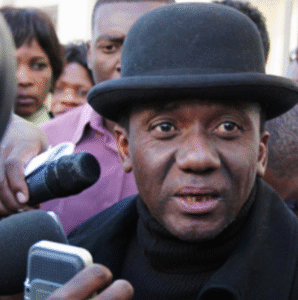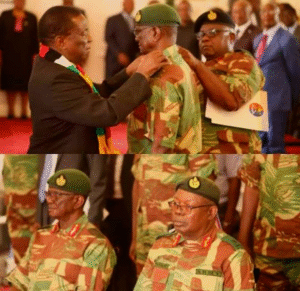CORRUPTION SCANDAL ROCKS ZIMBABWE’S ELECTORAL BODY AMID TOP OFFICIALS’ INTRIGUE

In a deepening scandal that threatens to compromise the integrity of Zimbabwe’s electoral process, revelations of a tender scandal have surfaced, implicating several high-ranking officials and businessmen in serious corruption. This controversy involves George Charamba, spokesman for President Emmerson Mnangagwa, who has been indefatigably defending the alleged corruption at the Zimbabwe Electoral Commission (ZEC).
The scandal has not only tainted the ZEC but has also drawn in other significant figures including the Office of the President and Cabinet, Chief Secretary to Cabinet Martin Rushwaya, Central Intelligence Organisation Director-General Isaac Moyo, and ZEC Chairperson Priscilla Chigumba. Moreover, prominent local businessmen such as Wicknell Chivayo, Moses Mpofu, and Pedzisayi “Scott” Sakupwanya, alongside South African businessmen Thomas Michel du Sart and Angus Carlaw, have been implicated.
George Charamba, a civil servant whose salary is funded by taxpayers, has come under fire for his unprofessional conduct and for engaging in hostile exchanges on social media platforms such as X/Twitter. He has been particularly venomous towards The NewsHawks, a media outlet that has been instrumental in exposing the multimillion-dollar scandal along with numerous other cases of corruption, incompetence, and governance failures under President Mnangagwa.
The scandal revolves around irregularities and fraudulent activities associated with tenders issued by the ZEC. These tenders, reportedly worth millions of dollars, were supposed to be part of the preparations for upcoming electoral events but have instead exposed a network of corruption that connects business and political elites in both Zimbabwe and South Africa.
This controversy casts a long shadow over the credibility of the ZEC and raises questions about the fairness and transparency of future elections in Zimbabwe. As more details emerge, the involvement of such high-level officials and businessmen suggests a systematic attempt to manipulate electoral processes for personal and political gain.
Charamba’s role in this scandal is particularly controversial. Known for his combative style, Charamba has not shied away from attacking those who critique or expose the administration’s shortcomings. His aggressive defense of the status quo, where he frequently uses social media to target journalists and members of the public, highlights the challenges faced by media in Zimbabwe in their quest to hold power to account.
The exposure of this scandal by The NewsHawks and other media outlets has been crucial in bringing these issues to light, despite the hostile environment they operate in. The courage of these journalists in investigating and reporting on corruption is pivotal in the fight against impunity and in the promotion of democracy and good governance in Zimbabwe.
As the situation unfolds, the international community and local watchdogs are increasingly alarmed about the implications of these revelations. There are calls for thorough investigations and for those implicated to be held accountable. However, the entrenched interests and the high stakes involved make it uncertain whether these calls will lead to substantive changes or penalties for those at the heart of the scandal.
The saga continues to evolve, with more evidence and accusations likely to surface. This scandal not only jeopardizes the reputational standing of the ZEC but also poses significant threats to the democratic fabric of Zimbabwe, a country already grappling with political and economic challenges. As the nation moves towards future electoral milestones, the integrity and credibility of its electoral commission remain in jeopardy, overshadowed by the dark clouds of corruption and malfeasance.




